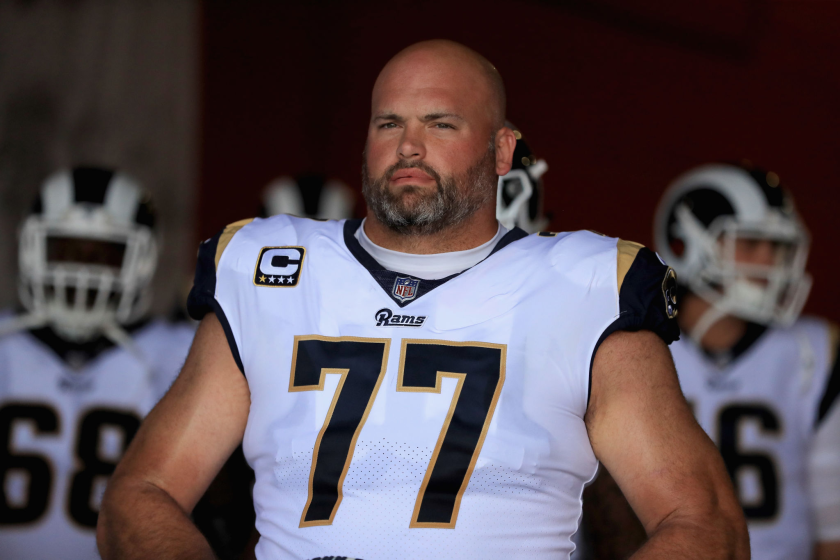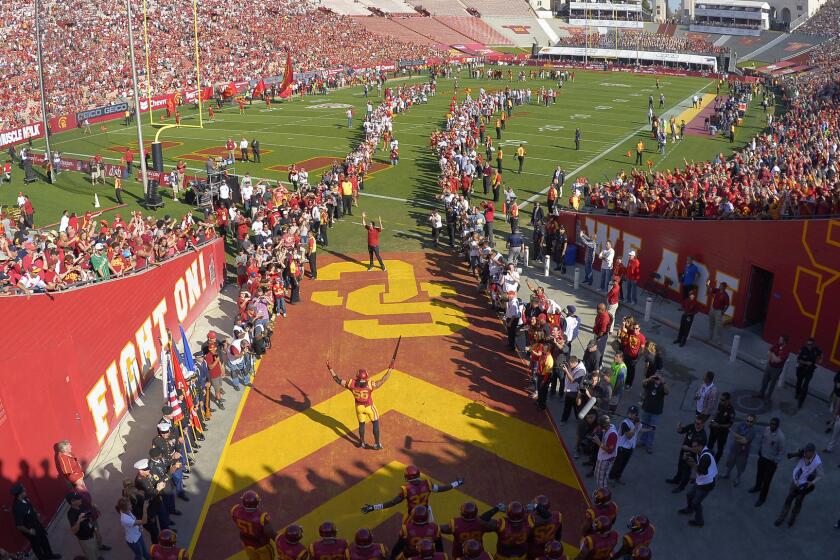NFL, players’ union committee agree to terms to continue with 2020 season

- Share via
In a furious flurry of activity Friday, the NFL and its players’ union cleared a final hurdle to start training camps on time, agreeing to financial terms regarding a season that could be sidetracked by the COVID-19 pandemic.
After the NFL Players Assn. executive committee voted unanimously to recommend the plan, player representatives approved the changes to the collective bargaining agreement by a 29-3 vote.
“We have worked collaboratively to develop a comprehensive set of protocols designed to minimize risk for fans, players, and club and league personnel,” NFL commissioner Roger Goodell said in a written statement.
When it comes to evaluating players, teams are going to have to speed read — and without the benefit of preseason games, which are a casualty of the deal.
Camps across the league are due to open Tuesday, and the first four days are reserved for COVID testing. Players and coaches must test negative twice, with 72 hours between tests, in order to enter the facility the first time. The fifth and sixth days of camp will be for physical examinations, equipment fittings and virtual meetings.
Eight days of strength and conditioning — plus a day off — follow, and then four days of a “ramp-up” period without pads. For everyone except the Houston Texans and Kansas City Chiefs, who face each other in the opener and therefore are three days ahead on their schedules, the first padded practices cannot take place before Aug. 17. There are a maximum of 14 padded practices per team.
Rams offensive lineman Andrew Whitworth talks about his family’s battle with the coronavirus, which began in mid-June.
That means coaches are going to have to make quick decisions on position battles.
Said Goodell: “These plans have been guided by the medical directors of the NFL and the NFLPA and have been reviewed and endorsed by independent medical and public health experts, including the CDC, and many state and local public health officials. The season will undoubtedly present new and additional challenges, but we are committed to playing a safe and complete 2020 season, culminating with the Super Bowl.”
Teams can start camp with 90 players, but they can’t have more than 80 at their facility at a given time, and the rosters have to be trimmed to 80 on or before Aug. 16, the day before padded practices begin.
Practice squads have been increased from 12 to 16 players, and teams can protect four of those players every week, meaning other teams cannot poach those four to add to their active rosters.
So, with room for 53 players on the active roster and 16 on the practice squad, the challenge for teams will be deciding which 11 of the 80 to let go.
Players can opt out of the 2020 season if they wish, but need to declare that within the next 10 days if they intend to do so. By opting out, they would play the 2021 season under the terms of their deal for 2020.
College football and NFL should delay the 2020 season until next year, writes columnist Bill Plaschke.
The salary cap is calibrated each year based on the revenues of the previous season. NFL owners wanted the full force of this season’s revenue losses to be reflected in next year’s cap. But players wanted those losses to be absorbed over the next decade.
The sides met in the middle. They agreed to a salary-cap floor of $175 million per team next year — about $35 million less than the projected cap in a normal season — even though teams could wind up taking a far more significant financial hit this year. If the league fares better than expected this season, next year’s cap could be more than $175 million. The impact of this year’s shortfall will be absorbed over the four years that follow.
If the NFL is forced to stop the season early, players will not be paid for games that don’t take place.
More to Read
Go beyond the scoreboard
Get the latest on L.A.'s teams in the daily Sports Report newsletter.
You may occasionally receive promotional content from the Los Angeles Times.









